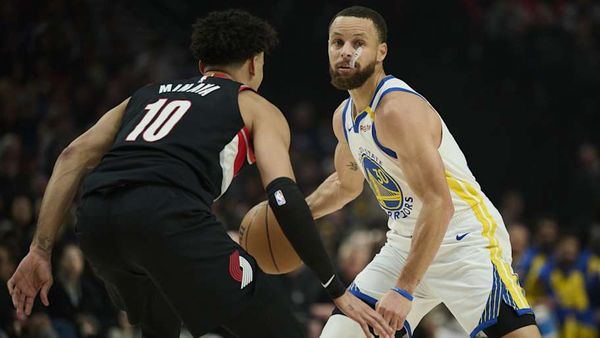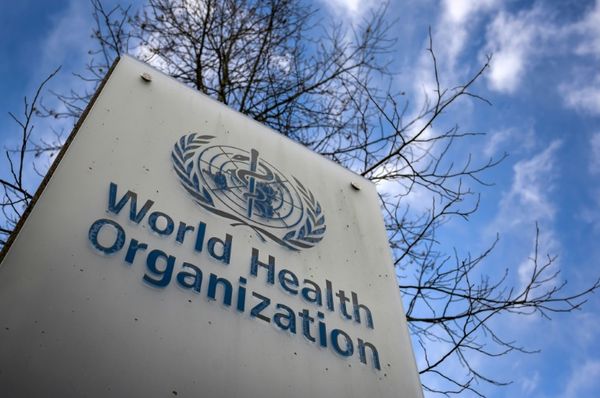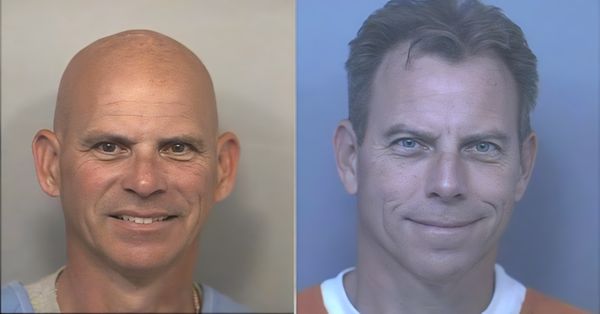PHILADELPHIA — The AM-radio broadcast hummed in his car, providing a soundtrack for the summer nights he delivered pizzas throughout South Philadelphia. The announcers — Harry, Whitey, Wheels and Andy — were able to make a nine-inning game feel like a breeze. And when the Phillies entered the late innings, the driver knew to listen closely. An order — more so a plea — was likely going to come over the airwaves.
“I wonder if anyone over at Celebre’s is listening,” Richie Ashburn, in his Nebraska-twang, would say into the microphone.
The driver zipped back to the shop. Whitey said it again, he told the cooks as the pizzas were tossed in the oven. He soon headed a few blocks over to Veterans Stadium, parked his car out front with his blinkers on, and took the elevator to the press box. It happened so frequently that the security guards hardly questioned him.
“As soon as he mentioned it, the pizzas would show up,” said Ashburn’s son, Richard.
Ashburn’s broadcasting career started 60 years ago with a 2-1 Phillies win over Cincinnati at Connie Mack Stadium. He had played his final game seven months earlier, retiring after hitting .306 in 1962 as an All-Star for the 120-loss Mets. After 15 seasons, it was time for Ashburn to try something else.
A Denver oil company recruited Ashburn to be its pitchman and folks back home in Nebraska urged him to become a politician. He was sharp and knew how to work a crowd. But his wife, Herberta, reminded him that baseball was what he knew best.
So Ashburn returned to the Phillies — the team he signed with as a teenager in 1944 — as a color commentator. He spent 35 seasons in the booth, something almost unimaginable today as a current Hall of Fame-caliber player amasses such career earnings that they would likely not entertain the everyday rigor of broadcasting — travel, commitments, long days.
But Ashburn, often broadcasting with a pipe in his mouth and a cap on his head, loved it. He became as integral in the booth as he was on the field. And he soon learned that the job came with perks.
“It was free advertisement,” said Bob Celebre, who opened the pizza shop at 1536 Packer Ave. in Packer Park in the 1960s. “So of course, we sent them over.”
He looks runnerish
The Whiz Kids were the most popular team for a generation of Philadelphians and Ashburn — No. 1 — was tops. He hit .303 for the 1950 pennant winners, ran the bases like a deer, and patrolled center field with grace. New York had Willie, Mickey, and the Duke. Philly had Whitey.
“He always looked like he was playing with his hair on fire,” said Chris Wheeler, who adored Ashburn as a youngster and credits him for allowing him the chance to broadcast his first Phils game. “We didn’t analyze things back then the way they do now, ‘Well, his OPS was and his WAR was.’ You just looked at him and for us kids, he was our guy.”
It wasn’t a surprise that Ashburn was an instant hit with fans once he traded his bat for a microphone. And it didn’t take long for him to believe that he was a better fit in the booth at Connie Mack Stadium than he was selling oil.
His role — a former player turned analyst — is now part of nearly every baseball broadcast. But then it was a novelty. And listeners loved it.
Ashburn was a Philadelphia icon, but he arrived at Celebre’s in the 1970s as just another customer. The Phillies moved to South Philadelphia in 1971 and the broadcaster stopped for lunch one afternoon before heading to work. Ashburn sat by himself in a corner of the restaurant.
A waitress asked Bob Celebre if he knew who that was. The diner looked familiar, he said. It was Ashburn, she told him.
“So I sat down and introduced myself,” Celebre said.
That was his dad, the younger Ashburn said. He was a six-time All-Star and would eventually reach the Hall of Fame, in 1995. But he saw himself as just a normal guy. That’s what allowed a guy from Nebraska to connect with Philadelphia.
By Saam — one of Ashburn’s original broadcasting partners — once said Ashburn “knew when to shut up and not talk too much.” Yes, Ashburn knew the game. But he didn’t feel the need to prove himself. He was smart — he used a pen every day to complete the New York Times crossword puzzle, his son said — and he loved to read. Ashburn spent his entire adult life in baseball, but he knew more than just center field.
And it came across when he spoke on those summer nights. It was like listening to your uncle, Wheeler said. He was self-deprecating, opinionated, and not afraid to remind listeners of his disdain of umpires. Between innings, he had time for everyone from President Gerald Ford — “He’s like, ‘Whitey, how ya doing?’ Gosh, how did my dad know the president of the United States,’” the younger Ashburn said — to Charlie the security guard. But Ashburn’s favorite guest might have been his pizza guy.
“It was all smiles, thumbs up, and patting me on the back,” said Danny, the Celebre’s driver who asked to not print his last name. “It was Andy Musser, Harry Kalas, Richie Ashburn, and Chris Wheeler. They really looked like they enjoyed being around each other and doing the game. They were always smiling, laughing, and clowning around. On the way out, someone was always stuffing money into my pocket.”
Hard to believe, Harry
Ashburn’s broadcasting career nearly ended after 10 seasons when he interviewed to be the Phillies manager. The team lost 97 games in 1972, but he could see from the booth that better days were coming. Mike Schmidt, Larry Bowa, Bob Boone, and Greg Luzinski — the homegrown core of the 1980 World Series champions — had arrived in the majors and Steve Carlton had just won 27 games in his first season with the Phils.
“It was [then-general manager] Paul Owens who would have had to hire him,” said Richard Ashburn. “And somebody came up to him and said, ‘You know, you might have to fire him someday.’ He’s like, ‘I’m not going to be the one to fire Richie Ashburn,’ so they took him out. But he really did want to manage.”
Ashburn stayed in the booth and formed an iconic bond with Kalas, who arrived in 1971 with the new stadium. They were both from the Midwest and proved to be the perfect pair as they worked together for 27 seasons. Kalas played the straight man to Ashburn’s dry wit. It worked.
Kalas asked his partner if he had any superstitions, teeing Ashburn up. Of course, he said. He used to take his bat to bed with him if he was in a slump. You slept with them? “I slept with a lot of old bats, Harry,” Ashburn said.
“Fans so loved the dry humor, the stories Richie and Harry told on the air, and Richie’s quirky way of reacting to the game,” Schmidt said. “Make no mistake, Richie knew the game inside and out, as did Harry. That broadcast team was one of a kind and there will never be another like them.”
The partners were best friends — “closer than brothers,” Richard Ashburn said — and they made losing seasons worth listening to. But they weren’t always together. On road trips, Kalas often went out after games with the other broadcasters or members of the coaching staff. But not Ashburn.
“He wasn’t like the rest of us,” Wheeler said. “He would go back to his room and he’d say, ‘I’m going to spend time tonight in Suite 245 with the most interesting person I know. Me.’ He’d rather be in his room reading than be out like the rest of us were in those crazy days.”
Oh, brother
Celebre’s is now owned by Michael Spina, who grew up in South Philly and started working there when he was 13. Not much else has changed since Ashburn first ate there alone. The pizza boxes still have Snoopy on the lid, the sign above the entrance is the same as it was when it first opened, and business spikes — yes, Ashburn’s plugs helped — when the teams are winning.
Celebre’s started out just selling tomato pies in the 1960s but soon “invented” Pizzaz, the popular South Philly pizza with American cheese, sliced tomatoes, and banana peppers. The shop is a neighborhood staple, a comforting place like the flat voice that used to talk about baseball on the radio. For Ashburn, Celebre’s was more than just a running bit on the broadcast.
“In another way, they were his family,” Richard Ashburn said. “He had a lot of friends in South Philly.”
And they still talk at Celebre’s about Ashburn, more than 25 years after he died.
“People come in all the time and say it,” Spina said.
The Celebre’s connection became legendary in 2002 when Kalas used it to begin his Hall of Fame speech in Cooperstown, N.Y. The Phillies, the story goes, had landed a deal with a new pizza sponsor, so David Montgomery told Wheeler that Ashburn had to stop giving Celebre’s free plugs. Wheeler relayed the information to his partner.
“He said, ‘OK. No problem.’ But I knew he wasn’t listening,” Wheeler said. “The next night, we’re playing a long game and we’re hungry. We’re in extra innings. That’s when he would always beg for pizza. Out of nowhere, he goes, ‘I’d like to send our best wishes to Bob Celebre and the Celebre family. They had a birth in their family. They had twins. Plain and pepperoni.’
“You can’t make this up.”
Of course, Ashburn’s buddy at Celebre’s was tuned in.
“That did happen,” said the delivery driver. “Right away, I came back in and said, ‘Hey, Richie was talking about us again.’ ”
The pizzas were in the oven and the car was soon pulling up to the Vet with the blinkers on. For Ashburn, it was a visit from family.
“Soon, that smell was coming into the back of the booth,” Wheeler said. “We had two pizzas: plain and pepperoni.”







